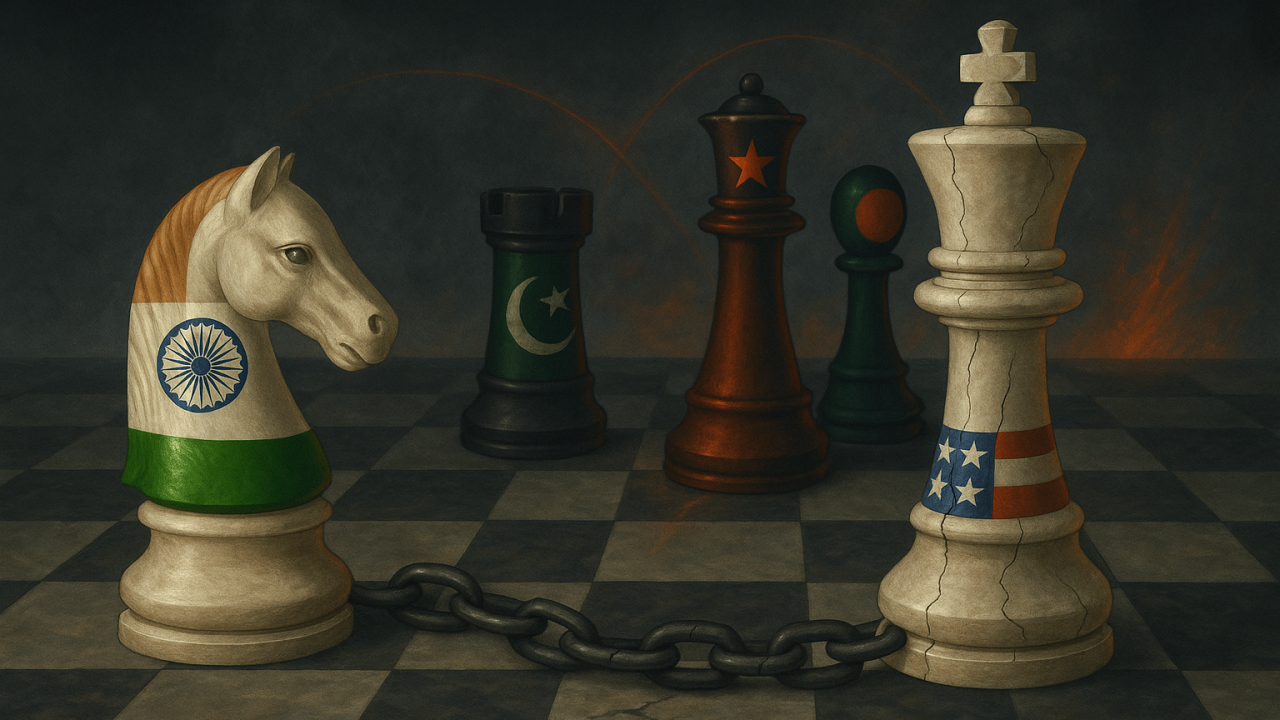 In the aftermath of the Pahalgam massacre, Pakistan’s Defence Minister Khawaja Asif delivered a statement loaded with strategic signaling.
In the aftermath of the Pahalgam massacre, Pakistan’s Defence Minister Khawaja Asif delivered a statement loaded with strategic signaling.
He accused the United States & the United Kingdom of playing a very negative role, charging them with promoting terrorism through Pakistan and hobnobbing with terrorists for three decades.
Through this broadside, Islamabad signaled a sharp pivot: retaliating against American criticism and abandonment by firmly closing the door on the U.S. and instead reinforcing its embrace of the Sino-Pakistan partnership.
Within hours of that salvo, Donald Trump — unwilling to be left without leverage in the Indo-Sino-Pakistani theatre — weighed in.
“India is a very good friend of ours. Pakistan is a very good friend of ours. We hope things will work out between them,” he said.
Trump’s sudden doublespeak revealed a deliberate move to keep channels open with Pakistan, signaling Washington’s reluctance — at least for now — to get drawn into a volatile regional conflict.
It also betrayed a deeper recognition: the strategic balance is shifting. A consolidating Pakistan-China-Bangladesh axis is quietly tilting the geopolitical terrain against India.
Once again, it served as a stark reminder: trusting the U.S. as an enduring security partner is a strategic mistake India can ill afford — and Pakistan’s provocation worked, at least for this round.
That said, Indian government and diplomacy possess tremendous agency and would have anticipated Washington’s ambivalence in this regard well in advance.